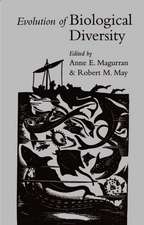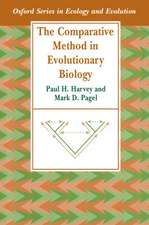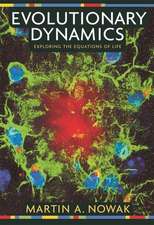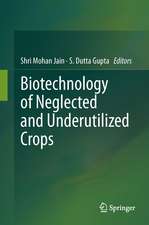Self-organization and Emergence in Life Sciences: Synthese Library, cartea 331
Editat de Bernard Feltz, Marc Crommelinck, Philippe Goujonen Limba Engleză Paperback – 10 oct 2011
Historical aspects of the issue are also broached. Intuitions relative to self-organization can be found in the works of such key western philosophical figures as Aristotle, Leibniz and Kant. Interacting with more recent authors and cybernetics, self-organization represents a notion in keeping with the modern world's discovery of radical complexity.
The themes of teleology and emergence are analyzed by philosophers of sciences with regards to the issues of modelization and scientific explanation.
The implications of self-organization for life sciences are here approached from an interdisciplinary angle, revealing the notion as already rewarding and full of promise for the future.
| Toate formatele și edițiile | Preț | Express |
|---|---|---|
| Paperback (1) | 1215.04 lei 6-8 săpt. | |
| SPRINGER NETHERLANDS – 10 oct 2011 | 1215.04 lei 6-8 săpt. | |
| Hardback (1) | 1226.73 lei 6-8 săpt. | |
| SPRINGER NETHERLANDS – 13 ian 2006 | 1226.73 lei 6-8 săpt. |
Din seria Synthese Library
- 15%
 Preț: 638.43 lei
Preț: 638.43 lei - 18%
 Preț: 989.98 lei
Preț: 989.98 lei - 15%
 Preț: 596.69 lei
Preț: 596.69 lei - 18%
 Preț: 903.93 lei
Preț: 903.93 lei - 15%
 Preț: 586.88 lei
Preț: 586.88 lei - 15%
 Preț: 696.50 lei
Preț: 696.50 lei - 18%
 Preț: 892.90 lei
Preț: 892.90 lei - 15%
 Preț: 643.34 lei
Preț: 643.34 lei -
 Preț: 282.33 lei
Preț: 282.33 lei - 5%
 Preț: 372.19 lei
Preț: 372.19 lei -
 Preț: 443.10 lei
Preț: 443.10 lei - 15%
 Preț: 637.59 lei
Preț: 637.59 lei - 18%
 Preț: 958.88 lei
Preț: 958.88 lei - 15%
 Preț: 642.36 lei
Preț: 642.36 lei - 18%
 Preț: 1230.66 lei
Preț: 1230.66 lei - 15%
 Preț: 642.83 lei
Preț: 642.83 lei - 18%
 Preț: 1000.39 lei
Preț: 1000.39 lei -
 Preț: 389.70 lei
Preț: 389.70 lei - 15%
 Preț: 637.28 lei
Preț: 637.28 lei - 18%
 Preț: 952.26 lei
Preț: 952.26 lei - 18%
 Preț: 1231.32 lei
Preț: 1231.32 lei - 15%
 Preț: 645.96 lei
Preț: 645.96 lei -
 Preț: 395.85 lei
Preț: 395.85 lei -
 Preț: 400.47 lei
Preț: 400.47 lei - 18%
 Preț: 1225.48 lei
Preț: 1225.48 lei - 15%
 Preț: 638.89 lei
Preț: 638.89 lei - 18%
 Preț: 1232.09 lei
Preț: 1232.09 lei -
 Preț: 380.45 lei
Preț: 380.45 lei -
 Preț: 394.87 lei
Preț: 394.87 lei - 15%
 Preț: 640.37 lei
Preț: 640.37 lei - 15%
 Preț: 639.08 lei
Preț: 639.08 lei -
 Preț: 381.98 lei
Preț: 381.98 lei - 15%
 Preț: 643.00 lei
Preț: 643.00 lei - 15%
 Preț: 672.29 lei
Preț: 672.29 lei
Preț: 1215.04 lei
Preț vechi: 1481.76 lei
-18% Nou
Puncte Express: 1823
Preț estimativ în valută:
232.50€ • 242.27$ • 192.51£
232.50€ • 242.27$ • 192.51£
Carte tipărită la comandă
Livrare economică 03-17 aprilie
Preluare comenzi: 021 569.72.76
Specificații
ISBN-13: 9789048169979
ISBN-10: 9048169976
Pagini: 372
Ilustrații: XII, 352 p.
Dimensiuni: 160 x 240 x 20 mm
Greutate: 0.52 kg
Ediția:2006
Editura: SPRINGER NETHERLANDS
Colecția Springer
Seria Synthese Library
Locul publicării:Dordrecht, Netherlands
ISBN-10: 9048169976
Pagini: 372
Ilustrații: XII, 352 p.
Dimensiuni: 160 x 240 x 20 mm
Greutate: 0.52 kg
Ediția:2006
Editura: SPRINGER NETHERLANDS
Colecția Springer
Seria Synthese Library
Locul publicării:Dordrecht, Netherlands
Public țintă
Professional/practitionerCuprins
I - Scientific Approach.- The Complex Adaptative Systems Approach to Biology.- Emergence and Reductionism: from the Game of Life to Science of Life.- Formalizing Emergence: the Natural After-Life of Artificial Life.- Analysis and Synthesis of Regulator Networks in Terms of Feedback Circuits.- Properties Emerging from Sensorimotor Interfaces: Interaction Between Experimentation and Modeling in Neurosciences.- Neuronal Synchrony and Cognitive Functions.- About Biology and Subjectivity in Psychiatry.- Self-Organization and Meaning in Immunology.- II - Historic Approach.- Kant and the Intuitions of Self-Organization.- On a "Mathematical Neo-Aristotelism" in Leibniz.- "Essential Force" and "Formative Force": Models for Epigenesis in the 18th Century.- From Logic to Self-Organization–Learning about Complexity.- The Concept of Emergence in the XIXth Century: from Natural Theology to Biology.- Artificial Life and the Sciences of Complexity: History and Future.- Self-Organization in Second-Order Cybernetics: Deconstruction or Reconstruction of Complexity.- III - Epistemological and Conceptual Approaches.- Teleology in Self-Organizing Systems.- Phenomenology and Self-Organization.- A Role for Mathematical Models in Formalizing Self-Organizing systems.- Explanation and Causality in Self-Organizing Systems.- Self-Organization, Selection and Emergence in the Theories of Evolution.
Textul de pe ultima copertă
Self-organization constitutes one of the most important theoretical debates in contemporary life sciences. The present book explores the relevance of the concept of self-organization and its impact on such scientific fields as: immunology, neurosciences, ecology and theories of evolution.
Historical aspects of the issue are also broached. Intuitions relative to self-organization can be found in the works of such key western philosophical figures as Aristotle, Leibniz and Kant. Interacting with more recent authors and cybernetics, self-organization represents a notion in keeping with the modern world's discovery of radical complexity.
The themes of teleology and emergence are analyzed by philosophers of sciences with regards to the issues of modelization and scientific explanation.
The implications of self-organization for life sciences are here approached from an interdisciplinary angle, revealing the notion as already rewarding and full of promise for the future.
Historical aspects of the issue are also broached. Intuitions relative to self-organization can be found in the works of such key western philosophical figures as Aristotle, Leibniz and Kant. Interacting with more recent authors and cybernetics, self-organization represents a notion in keeping with the modern world's discovery of radical complexity.
The themes of teleology and emergence are analyzed by philosophers of sciences with regards to the issues of modelization and scientific explanation.
The implications of self-organization for life sciences are here approached from an interdisciplinary angle, revealing the notion as already rewarding and full of promise for the future.
Caracteristici
Highly interdisciplinary with three main approaches: scientific, historical and philosophical In each of these approaches the different thematics are presented by high level contributors
















